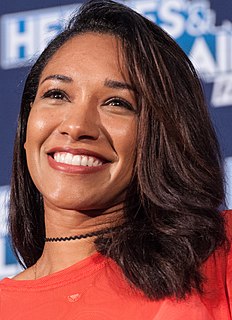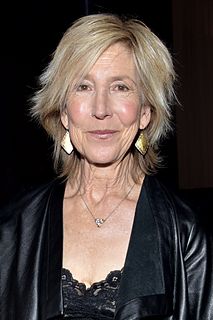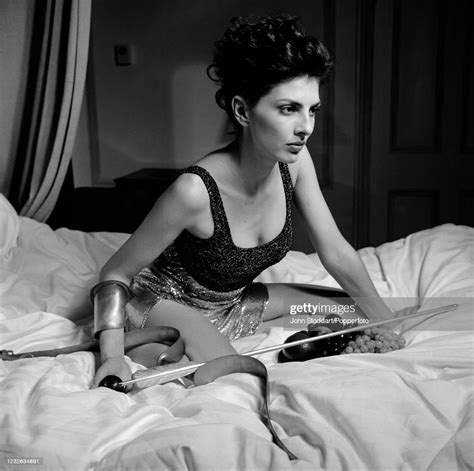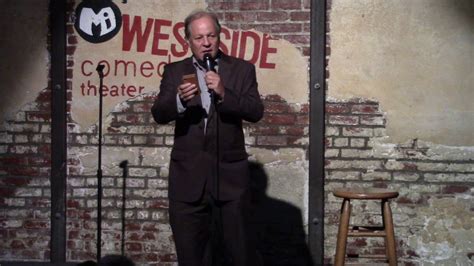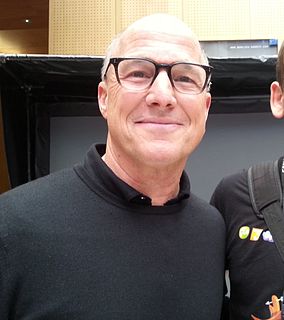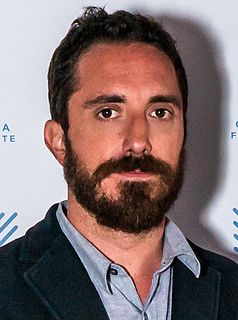A Quote by Candice Patton
I learn my lines in a few different ways. A lot of my dialogue sticks with me in a general sort of way when I read the entire script for the first or second time. Then, when I get the shooting schedule, I have a better idea of what scenes are shooting when. I then will focus on those that are coming up first.
Related Quotes
Somebody comes to your house. You know they're coming, so it's not a surprise. And they give you an envelope that has your scenes in it. And they sit in the car outside for a half an hour while you read your scenes, then they ring your doorbell and you give your scenes back. Then you shoot the movie a few weeks later or something. The next time you see your scenes is the night before you start shooting. I never read the script [Blue Jasmine], so I didn't really know what it was about.
There in front of me was the Senator on the floor being held by the busboy. There was nobody else around, and I made my first frame, and I forgot to focus the camera. The second frame was a little more in focus... then just for a second, while everything was open, the busboy looked up, and he had this look in his eye. I made that picture, and then suddenly the whole situation closed in again. And it became bedlam.(On the 1968 shooting of U.S. presidential candidate Bobby Kennedy.)
Every time I do a movie, I'm reading the script, or if it's something I have coming up, I'm reading the script, and I just spend hours and hours and days and weeks and months going over the script and just writing a lot of different ideas down, finding a little dialogue or just coming up with ideas for scenes and moments and all that kind of stuff.
Literally, people probably came up with a budget and said, 'It'll be cheaper if we cut down the prep,' but it's not cheaper, because then you're shooting, you're fumbling through the movie and you are prepping at three times the cost because you're quadruple-time as you're shooting and then prepping after you're done shooting.
If we have come up with a creative decision and somebody comes up with another idea, you do have to get into the depths of it and ask: "Is it a better idea? Or is it a different idea?" That can be hard. But that's the type of conversation the director and I will have, or as part of our creative groups. So with that in mind, it's hard to keep a budget in line. It's like in life, if you've ever built anything for the first time you're usually better at it the second time.
There are some filmmakers like the Coen brothers that are very precise. They make shooting boards, they do it shot by shot, and they follow every single line in their own script. They make amazing movies, and I admire them so much, but I can't do that. I have no idea how the movie will exactly be. While shooting, I just try to create an accident that I don't control very well - grabbing things from different sources and ideas, and then having a sensation somewhere that it will make sense.
I don't think fast enough on my feet in terms of the writing to change the script too much when I'm shooting it. I like to have it set and done and know that I feel good about it and I might add a few lines here and there while we're shooting, if I think of a new joke, I might toss it in, but for the most part, I try to stick to the written script and have all the latitude exist within that.
